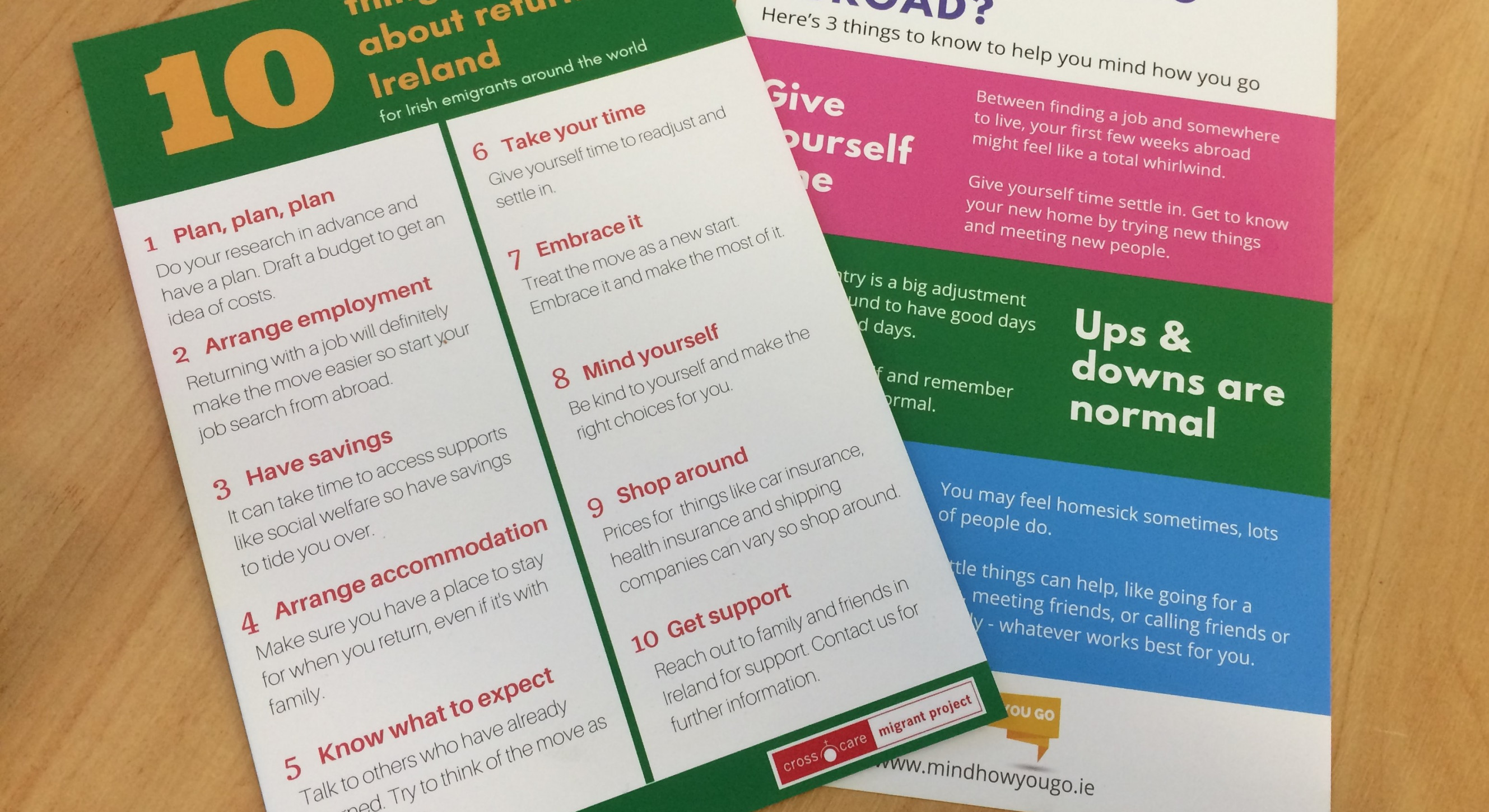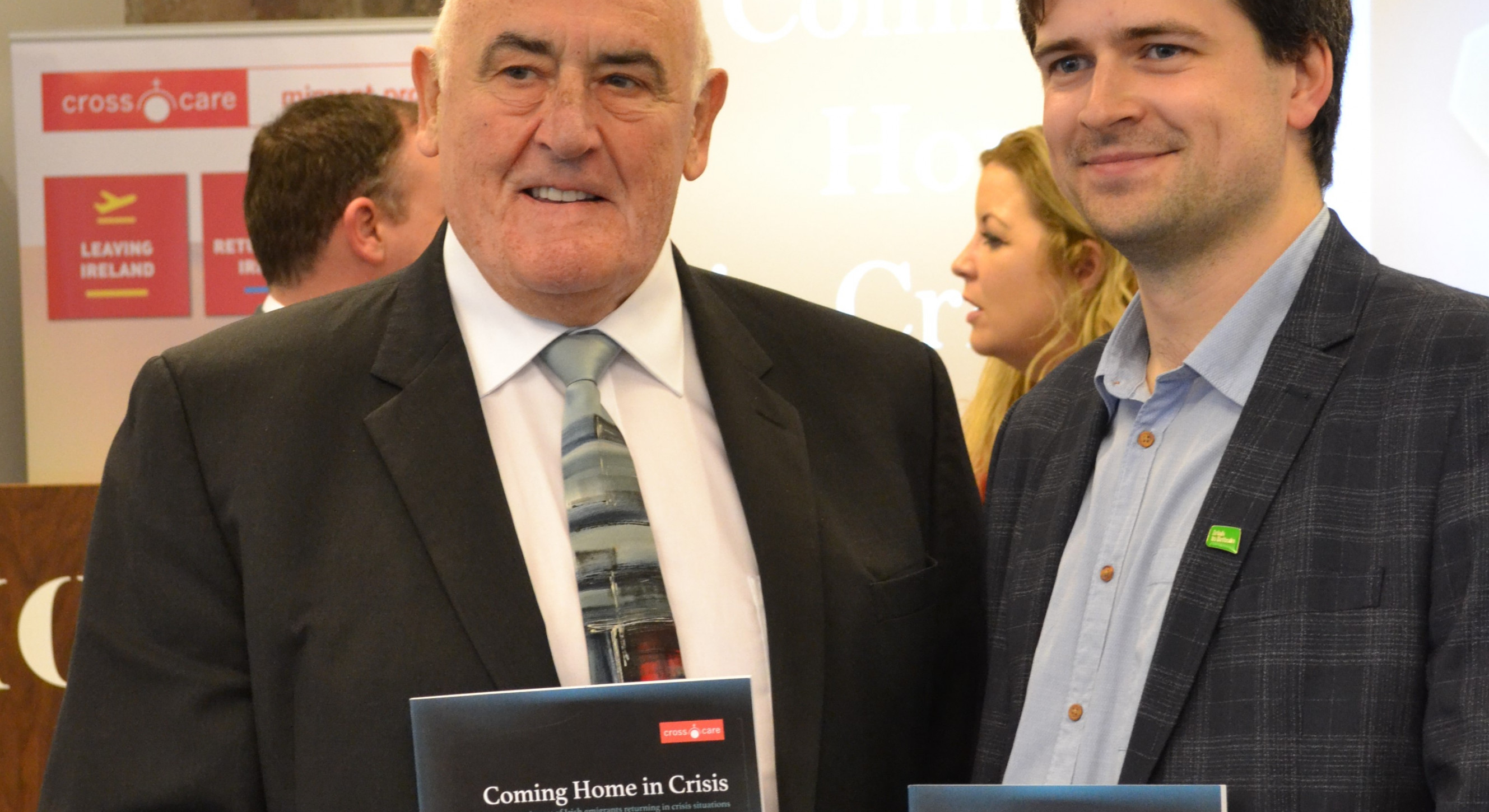Crosscare Migrant Project is an NGO and an Associate Member of Irish in Britain. It is part of Crosscare, a care provider in the greater Dublin area, and works with over 500 returning emigrants per year.
The report was launched at EPIC The Irish Emigration Museum in Dublin on Monday 14 October.
Speaking at the report’s launch was Billy Lawless, who sits in Seanad Éireann as an independent Senator and works on diaspora issues. He is based in both Chicago and Galway and is the first overseas Irish Senator. The Senator said that while Ireland is “up there with the best in terms of diaspora engagement, we’ve a lot to do to make it possible for our emigrants to come home”.
Patrick Rodgers from Irish Community Care Manchester (an Irish in Britain member organisation) and Brian Hanley from the Irish Council for Prisoners Overseas both spoke about their organisations’ work with vulnerable Irish people. Organisations outside of Ireland are often the first port of call for returning emigrants and show how it is vital that diaspora organisations are well connected with each other and work collaboratively.
Finally, the Migrant Project’s Policy Officer Danielle McLaughlin shed more light on the report’s methodology and recommendations.
The crisis circumstances the report refers to includes poverty, homelessness, isolation, mental and physical health needs and risks to personal safety. Much of the material in the report came from ten in–depth interviews with returned emigrants and 11 organisations from across the global diaspora.
Problems experienced by the interviewees included a lack of housing, immigration issues and unhelpful or uninformed social welfare workers in Ireland, and a lack of family support. Travellers and others from minority ethnic groups have faced discrimination on their return.
These experiences and Crosscare’s wider work led to the seven key recommendations of the report:
- Housing support – including access to emergency housing and expedited registration with local authorities.
- Financial support – such as immediate access to emergency social welfare and expediting claims.
- Family and support networks – assistance in securing immediate school placements for children.
- Health support – including free medical care for those in urgent need and access to affordable counselling services.
- Support for immigration issues and deportation/detention, and for those experiencing threats and violence, or fleeing conflict zones – recognition that not all returning emigrants will have all required documentation, as well as expedited protocol for those with non–EEA family members
- Discrimination – development of training and services provision across statutory services
- Cross–cutting longer–term actions – formalised recognition of needs across government, investment in knowledge and collaborative work between emigrant support groups, and expansion of Central Statistics Office annual population estimates to capture more information.
The report draws on some of the best aspects of the Irish diaspora to inform its findings: a global sense of community and solidarity and the importance of providing social welfare to the Irish government’s diaspora policy. However, it also highlights how many emigrants’ needs fail to be met and are often poorly understood, especially those in crisis circumstances.
This is a crucial piece of work in raising awareness about emigrants in crisis and provides clear recommendations about how to improve support services. With over 25,000 emigrants from across the world returning to Ireland in the year to April 2019, Coming Home in Crisis is a must read for all diaspora organisations as well as the Irish government.
As Senator Lawless said, there is still much to do to ensure that all returning emigrants receive the support that they need. Coming Home in Crisis plots the way forward.
You can read the full report here. It was also covered in the Irish Times.

